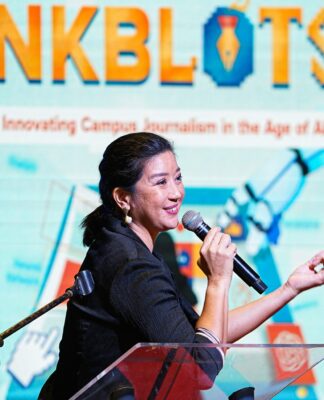THOMASIAN physical therapists stole the limelight in Singapore as they presented their research papers to a captive international audience during the Inaugural Physiotherapy Congress.
“It was an honor for the University to represent the Philippines in this prestigious congress,” said Dr. Anna Lea Enriquez, the Research Management Group Coordinator for the College of Physical Therapy (CPT).
The congress dubbed “Physiotherapy in the New Millennium” was organized by the Singapore Physiotherapy Association, under the World Confederation for Physical Therapy (WCPT) in the Asia Western Pacific Region held last July 19 to 23 at the Suntec Convention Centre.
Likewise, Enriquez said it was an achievement that UST’s papers were the only ones accepted by the WCPT for presentation, among other papers from physical therapy schools nationwide.
Most significantly, the group was able to establish linkages with the Nanyang Polytechnic University in Singapore.
The papers presented were made by CPT faculty researchers and physical therapy students who graduated last year.
The papers and the respective authors are as follows: “A Comparative Study of the Effectivity of Crunches versus Functional Electrical Stimulation on Abdominal Muscle Strength and Endurance” by Antonette Pangan; “Occurrence and Pattern of Delayed Onset Muscle Soreness (DOMS) in First Year Students in the College of Physical Therapy After One Session of Tae Bo Basic” by Cheryl Ramos; “Paraspinal Muscle Activity in Patients with Mild Adolescent Idiopathic Scoliosis” by Marvin Canita; “The QUANE: A Quad Cane with Pressure Sensitive Audio-Visual Feedback for Body Weight Transfer Detection” by Alvin Atlas and Dr. Enriquez, “The Effect of Facilitatory Taping in the Firing Ratio of the Vastus Medialis and Vastus Lateralis Muscles Using Surface EMG in Normal Individuals” by CPT Dean Consuelo G. Suarez.
Incidentally, Atlas’s paper was one of the five finalists which bested 50 other papers in the non-professional category of the 12th Scientific Poster Exhibit of the Philippine Council for Health, Research and Development (PCHRD). Stephen Roy O. Chua-Rojas

















